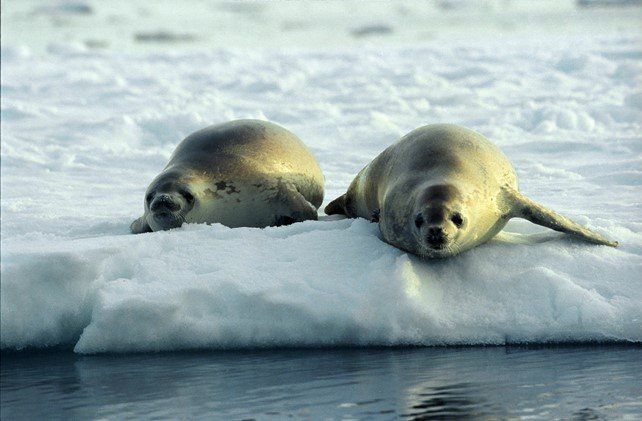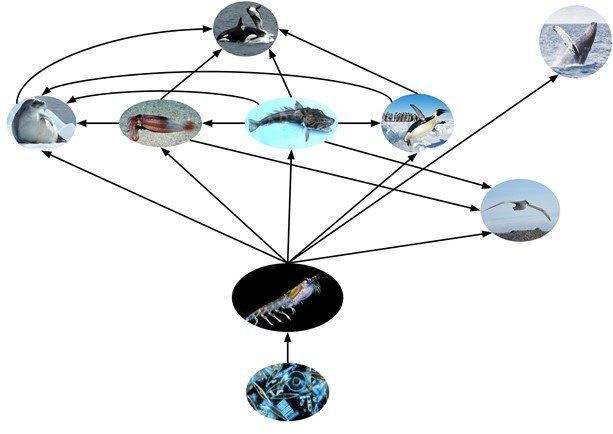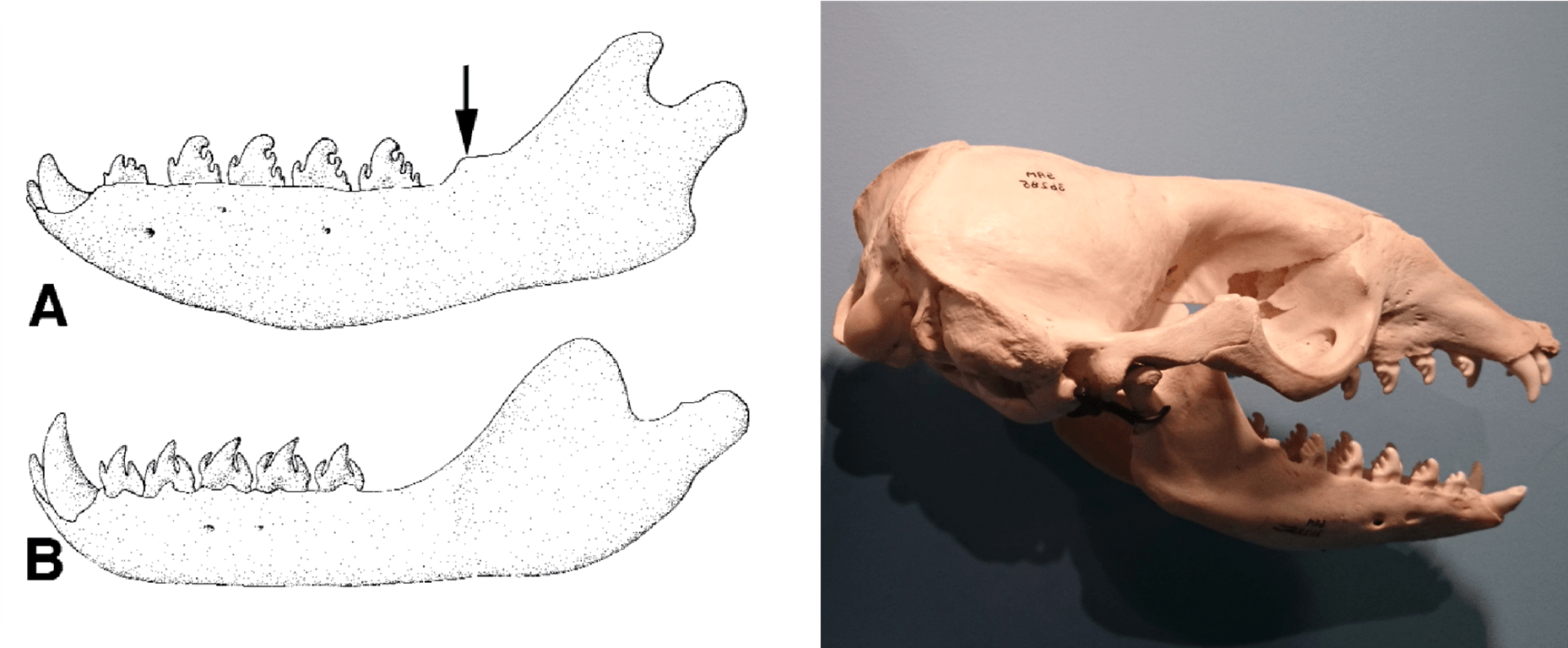Do Crabeater Seals Eat Crabs?
With a name like crabeater seal (Lobodon carcinophaga), you’d be forgiven for thinking the main diet of these seals is crabs. However these, and a number other cute seals actually have a diet mostly made up of krill, one of the most popular meals in the Southern Ocean. In order to make sure they can make the most of their meals, crabeater seals have evolved some interesting ways to survive on such a small creature.
Krill are a small, shrimp like crustacean found in seas around the world and are an important species within food chains. They primarily feed on microscopic phytoplankton, tiny organisms that create their own food via photosynthesis, but are the most common food source for a large number of Antarctic species. Although tiny, krill often travel in large, dense swarms that can stretch up to half a kilometre in size. When this happens, krill feeders will congregate around the swarm, making the most of the rare bounty. Animals with krill in their diet include multiple species of filter feeding whales, penguins, sea birds, fish, squid, and other seals. This means that there can be a lot of competition to get enough of the small crustacean to survive.
Seals, such as the crabeater seal, whose diet is mainly krill have evolved adaptations that make feeding on krill more effective. The teeth of crabeater seals are unique amongst mammals; each tooth has 3-5 lobes along the outer edge. When the jaw is closed there is also a very little space between the upper and lower teeth, almost interlocking with each other. The presence of these tiny gaps are created between the teeth which are just large enough to allow water to pass through, but will trap anything larger than a few millimetres inside the mouth.
The ability for any marine mammal to filter feed is impressive. Like us, ingesting too much salt water is harmful to seals and whales, so once the mouth is full of food and water, the water must be removed before the food can be swallowed. Baleen whales achieve this by using their tongue to push the water out of their mouth through their baleen plates (large bristles on the inside of a whale’s mouth), catching all the food in the mouth and expelling all the water. Crabeater seals have a similar method, using their lobed teeth like a sieve. The seals swim into swarms of krill with their mouths wide open to collect the krill, then close their mouths and push the water out through the gaps in their teeth. This enables crabeater seals to quickly filter and swallow its food, before re-entering the krill swarm for another mouthful of krill. Despite the small size, and likely high effort involved in catching enough krill to sustain adult crabeater seals, krill are often the main food source for these seals. In some studies on the stomachs of crabeater seals, up to 90% of the contents was krill, with the remaining 10% being arctic fish and cephalopods.
So in conclusion, crabeater seals definitely do not eat crabs, and actually spend most of their time sieving krill out their teeth!
References:
Adam, P. J., & Berta, A. (2002). Evolution of prey capture strategies and diet in the Pinnipedimorpha (Mammalia, Carnivora). Oryctos , 4 , 83-107.
Hall-Aspland, S. A., & Rogers, T. L. (2004). Summer diet of leopard seals (Hydrurga leptonyx) in Prydz Bay, Eastern Antarctica. Polar Biology , 27 (12), 729-734.
Hückstädt, L. A., Burns, J. M., Koch, P. L., McDonald, B. I., Crocker, D. E., & Costa, D. P. (2012). Diet of a specialist in a changing environment: the crabeater seal along the western Antarctic Peninsula. Marine Ecology Progress Series , 455 , 287-301.
Jones, K. E., & Goswami, A. (2010). Morphometric analysis of cranial morphology in pinnipeds
(Mammalia, Carnivora): convergence, ecology, ontogeny, and dimorphism. Carnivoran evolution: New views on phylogeny, form and function , 342-373.
McCormack, S. A., Melbourne-Thomas, J., Trebilco, R., Blanchard, J. L., & Constable, A. (2019). Alternative energy pathways in Southern Ocean food webs: Insights from a balanced model of Prydz Bay, Antarctica. Deep Sea Research Part II: Topical Studies in Oceanography , 104613.
SHARE THIS ARTICLE
















